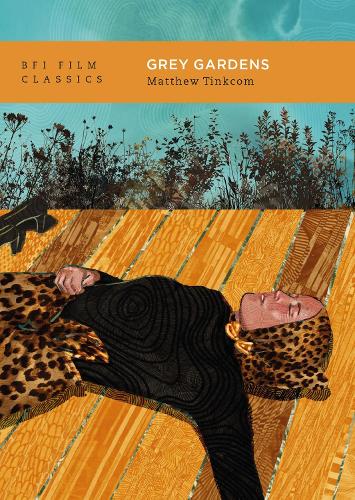
Grey Gardens
(Paperback, 2nd edition)
Available Formats
Publishing Details
Grey Gardens
By (Author) Dr. Matthew Tinkcom
Bloomsbury Publishing PLC
BFI Publishing
16th October 2025
2nd edition
United Kingdom
Classifications
General
Non Fiction
Film guides and reviews
Film history, theory or criticism
B
Physical Properties
Paperback
96
Width 134mm, Height 186mm, Spine 12mm
160g
Description
The Maysles brothers documentary film Grey Gardens (1975) chronicles the everyday lives of two eccentric upper-class women, Edith Bouvier Beale and her mother Edith. The film has gained the status of cult classic since its release, inspiring both a Broadway musical and a 2009 feature film. In this first single volume study, Matthew Tinkcom argues that Grey Gardens reshaped documentary cinema by moving the camera to the heart of the household, a private space into which film-makers had seldom previously ventured.
By the time the film-makers appeared on their front porch, Grey Gardens two central figures, Big Edie and her daughter Little Edie, had been living for two decades in squalor in their beachside East Hampton mansion. However, the women were hardly victims of their poverty; rather they saw themselves as artists who were willing to make any sacrifice for their singing and dancing talents. When the Edies perform for the camera, audiences are challenged by the question of how much anyone would be willing to give up in order to lead a life of eccentric pleasure. Tinkcom argues that Grey Gardens is innovative in blending documentary with the conventions of melodrama, and that the films appeal lies in the fabric of the Beales everyday lives in which they argue, dress up, flirt, laugh, sing, dance and reminisce about their experiences in New Yorks social elite in the first half of the twentieth century.
In his afterword to this new edition, Matthew Tinkcom reconsiders Grey Gardens fifty years after its release, addressing its cult status and the Edies continuing influence on popular culture.
Author Bio
Matthew Tinkcom is Director and Professor of Communication, Culture and Technology at Georgetown University, USA. He is the author of Working Like a Homosexual: Camp, Capital, Cinema (2002), Queer Theory and Brokeback Mountain (Bloomsbury, 2017) and co-editor of Key Frames: Popular Cinema and Cultural Studies (2003).
